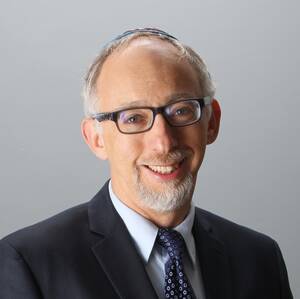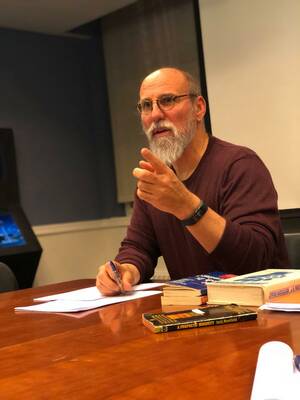An Opportunity for Jews to Reconsider Our Trauma
The JVP statement asks Jews to make new meaning out of our losses.
This article is part of a roundtable on JVP's statement on Zionism. Click here to read the rest of the conversation.
THE JEWISH VOICE FOR PEACE (JVP) statement on Zionism is part of a dramatic shift in US political discourse on Israel and Palestine. While brave public individuals, like Rep. Ilhan Omar, can still be attacked for speaking out against US support for Israel, we have also witnessed an outpouring of support for the legitimacy of her concerns. The idea that any and all criticism of Israel/Zionism is synonymous with antisemitism is being openly contested from ever growing sectors of our society, including by Jewish groups and individuals.
For American Jews, JVP’s decision to “unequivocally oppose Zionism” has created a major opportunity to reconsider the interpretations of Jewish trauma and self-determination that have been dominant since the Holocaust. It was only in the aftermath of the genocide of Jews in Europe that a majority of the world’s Jews embraced the Zionist political program in the form of the Israeli settler-colonial state. JVP’s statement does not seek to minimize the brutality of antisemitism or demand that Jews get over the past and move on; instead the statement enacts a new kind of confrontation with antisemitic legacies and ongoing dangers. The same feelings of fear, devastation, and defeat mobilized by Zionist organizations to convince Jews to identify with and support a Jewish state are an emotional reservoir from which a new set of political logics must emerge. The JVP statement asks Jews to make new meaning out of the losses we have suffered, to turn this suffering into the very lens that brings Palestinian suffering into focus. Only by linking the safety and flourishing of Palestinians and Jews—and rejecting apartheid, ethnic cleansing and occupation—can we recover any hope of a peaceful, democratic future.
I grew up in an anti-Zionist household with my father, a Zoroastrian immigrant from Iran, and my mother, an Ashkenazi Jew from New Jersey. She had broken from her Zionist upbringing after attending lectures by Palestinian leftists who taught the history of Israel from the point of view of its victims, to borrow Edward Said’s phrasing. She filled notebooks with their words and changed her worldview. Because of my mother’s anti-Zionism, I knew it was possible for American Jews to refuse participation and complicity in the oppression of Palestinians in the name of Jewish freedom and safety. At the same time, my parents’ views—and the fact that I am not white—set me apart from my Ashkenazi Jewish relatives and the other Jewish families I knew. It was difficult for me to claim my Jewishness because I was ashamed of Jewish support for Zionism. I thought I had to choose between a Jewish identity and my solidarity and identification with Palestinians.
The JVP statement creates a much larger space in which to exist and organize as an anti-Zionist, anti-racist Jew. It is, therefore, deeply meaningful and hopeful to me on both a personal and political level. Through JVP’s work, I have seen that it is possible for Jews from my mother’s, and even grandmother’s generation, to change their minds about a political position on which they once believed the very survival of their people depended. I have seen American Jews of my generation and younger, who have been brought up with Zionist education, reckon openly with a history of Zionist crimes against Palestinians that once felt impossible to acknowledge.
JVP’s statement is only part of its project to change the way Jewish people understand the meaning of Zionism, which has included carrying out systematic membership education about the Nakba and the lived realities of dispossession, inequality and occupation. This process has unfolded over years of discussion and debate, and has been deeply informed by Palestinians and Palestinian-Americans who have been leading resistance efforts, in particular the Boycott, Divestment, and Sanctions (BDS) campaign. What I have seen of the process that led to the release of this statement truly amazed me. Only after participating in one of the JVP webinars on the Nakba, along with an intergenerational group of 100 others from around the country, did I realize how demoralized I had previously been about the potential for American Jews to reject Zionism.
There are, of course, many Jews who will never come around and who will defend Israel no matter the scope of its brutality. Nonetheless, it is my great hope that this statement will come to represent a turning point in American Jewish ideas and feelings about the Zionist state project. For me, the statement says more than simply “not in my name”—it signals a political break that can channel Jewish grief, pain, and fear into the steady resolve to end Zionist colonization in Palestine.
Manijeh Nasrabadi is a writer and activist based in New York City.



